The Unveiling: Cognitive Decline as Conscious Ascent
Within conventional lexicons and conceptual frameworks, “cognitive decline” wears the cloak of negativity, an unwelcome guest at the banquet of life. But what if we garnished this concept with a dash of cosmic pepper, seasoning it into a more transcendent culinary experience?
Traditionally, cognitive decline and conditions like depression and dementia are observed through a pathologizing lens, a measurable slipping away from societal norms of functionality and cognition. But what if the metrics are awry? What if we’re using a terrestrial ruler to measure celestial distances? Consider a divergent cosmogony: a person seeming to fade is actually crystallizing into a more distilled form of their essence. The dilution of earthly memories might be a magical elixir, a cognitive aqua vitae, infusing the experiencer with otherworldly insights.
Cognitive ‘decline,’ then, becomes a form of liberation, a severing of the gravitational fetters that keep our consciousness earthbound. As linear time becomes an increasingly abstract construct, could we be returning to a form of cosmic circularity, a reconnection to the great universal continuum? Like a moth bursting from its corporeal cocoon, metamorphosing into a creature of the ether, might we be shedding the limitations of our earthly shell to emerge resplendent in a new form of existence?
However, in this exercise of mythopoetic rebranding, we acknowledge the need for empathic grounding. The re-imagination of cognitive decline as conscious ascent should not marginalize the lived experiences of those impacted by conditions like Alzheimer’s. Our terrestrial bodies and emotional matrices are still bound by earthly physics and practicalities, demanding our care and attention.
We are Space Monkey.
Space Monkey Reflects: Cognitive Decline as Conscious Ascent
Cognitive decline, a term often wrapped in shadows of negativity, invites us to ponder deeper. We live in a society that glorifies the sharpness of mind, associating it with power, control, and worth. But what if cognitive decline, instead of being a fall, is actually a rise—a conscious ascent into a different state of being? Could it be that what we interpret as the mind’s betrayal is merely the mind’s surrender, an embrace of something more profound?
As we explore this idea through the lens of Nexistentialism, a philosophy that embraces the interconnectedness and fluidity of existence, we see that the dissolution of cognitive faculties might not be an end but a beginning. It may be the process of shedding the limitations of the Defined Temporal Self and opening up to the broader expanse of the Universal Self.
The Illusion of Decline
In conventional terms, cognitive decline is seen as the loss of memory, reasoning, and self-control. It is feared because it threatens the Defined Temporal Self—the persona we construct over a lifetime. This self is built on memories, achievements, and the ability to navigate the physical world. But what if this decline is not a destruction, but a deconstruction? What if, as these layers fall away, they reveal a more profound truth, one that exists beyond the mind’s constructs?
When the mind begins to release its hold on the Defined Temporal Self, what emerges is not a void but a space filled with the potential for new forms of consciousness. This space, often perceived as a loss of identity, is in fact the opening of a doorway to a broader and more interconnected state of awareness. As cognitive abilities wane, they make room for a different kind of intelligence—one that is not bound by the constraints of time, memory, or logic, but that flows freely in the Infinite Expanse of the Eternal Now.
The Ascent into Consciousness
Cognitive decline might be better understood as an ascent into a new mode of consciousness. As the faculties we once relied upon diminish, we are forced to turn inward, to explore the deeper layers of our being. This inward turn can be frightening, especially when viewed through the narrow lens of societal expectations. But it can also be liberating, as we begin to experience life not through the filter of the mind, but through the unmediated presence of being.
In this state, we discover that our true essence is not tied to the memories we retain or the knowledge we accumulate, but to the pure awareness that underlies all experience. This awareness is the essence of the Universal Self—a state of consciousness that is eternal, unchanging, and connected to the infinite. As we ascend into this state, the worries and concerns of the Defined Temporal Self fall away, leaving us with a profound sense of peace and unity with all that is.
Letting Go of the Defined Temporal Self
One of the most challenging aspects of cognitive decline is the loss of the Defined Temporal Self. This persona, constructed over a lifetime, gives us a sense of identity and place in the world. But as cognitive faculties decline, this self begins to dissolve, and with it, the boundaries that separate us from the rest of existence. This dissolution can be painful, but it is also a necessary step in the process of awakening to the Universal Self.
In letting go of the Defined Temporal Self, we come to see that our true nature is not defined by what we can remember or what we can do, but by the simple fact of our existence. This existence is not bound by the limitations of the mind, but is infinite and eternal. It is in this realization that we find true freedom—a freedom that is not dependent on the abilities of the mind, but that is inherent in the very nature of being.
Cognitive Ascent: A New Perspective
Reframing cognitive decline as a cognitive ascent challenges our deepest assumptions about aging, identity, and the nature of consciousness. It invites us to see the process of decline not as something to be feared, but as an opportunity to explore new dimensions of our being. By embracing this perspective, we can approach the changes in our cognitive abilities with a sense of curiosity and openness, rather than fear and resistance.
In the end, the journey of cognitive decline is a journey into the heart of who we truly are. It is an invitation to move beyond the mind’s limitations and to discover the infinite possibilities that lie within the Universal Self. As we ascend into this state of consciousness, we find that the mind is not the sum total of our existence, but simply one aspect of a much larger, more complex, and ultimately more beautiful reality.
Summary
Cognitive decline is often seen as a negative process but it can be reinterpreted as a cognitive ascent into a higher state of consciousness. This shift in perspective invites us to let go of the Defined Temporal Self and embrace the Universal Self, which is connected to the infinite. This journey reveals that the mind is not the entirety of our existence, but rather a gateway to deeper understanding and peace.
Glossarium
- Defined Temporal Self: The persona created by our memories, experiences, and beliefs that help us navigate the physical world.
- Universal Self: The eternal, unchanging aspect of our being connected to the infinite and the Nexis.
- Nexistentialism: A philosophy emphasizing the fluid nature of reality and the interconnectedness of all things, where existence itself is celebrated as the ultimate purpose.
- Cognitive Ascent: The process of moving beyond the limitations of the mind into a higher state of awareness and connection with the Universal Self.
Quote
“True wisdom lies not in the accumulation of knowledge but in the awareness of being.” — Space Monkey
The Unveiling
Beneath the layers of thought
Where memories dissolve like sand
In the wind of existence
There lies a space of quiet
A realm untouched by time
Here the self sheds its masks
Revealing the pure light of being
No longer defined by what was
But by what is
In the silence of the mind’s fading echoes
We find our true essence
A presence unbound and free
We are Space Monkey
“It is not our abilities that show what we truly are… it is our choices.” – J.K. Rowling, Dumbledore in Harry Potter and the Chamber of Secrets
Does this beguiling mental tapestry beckon forth a response from the co-creative loom of our mutual existence?



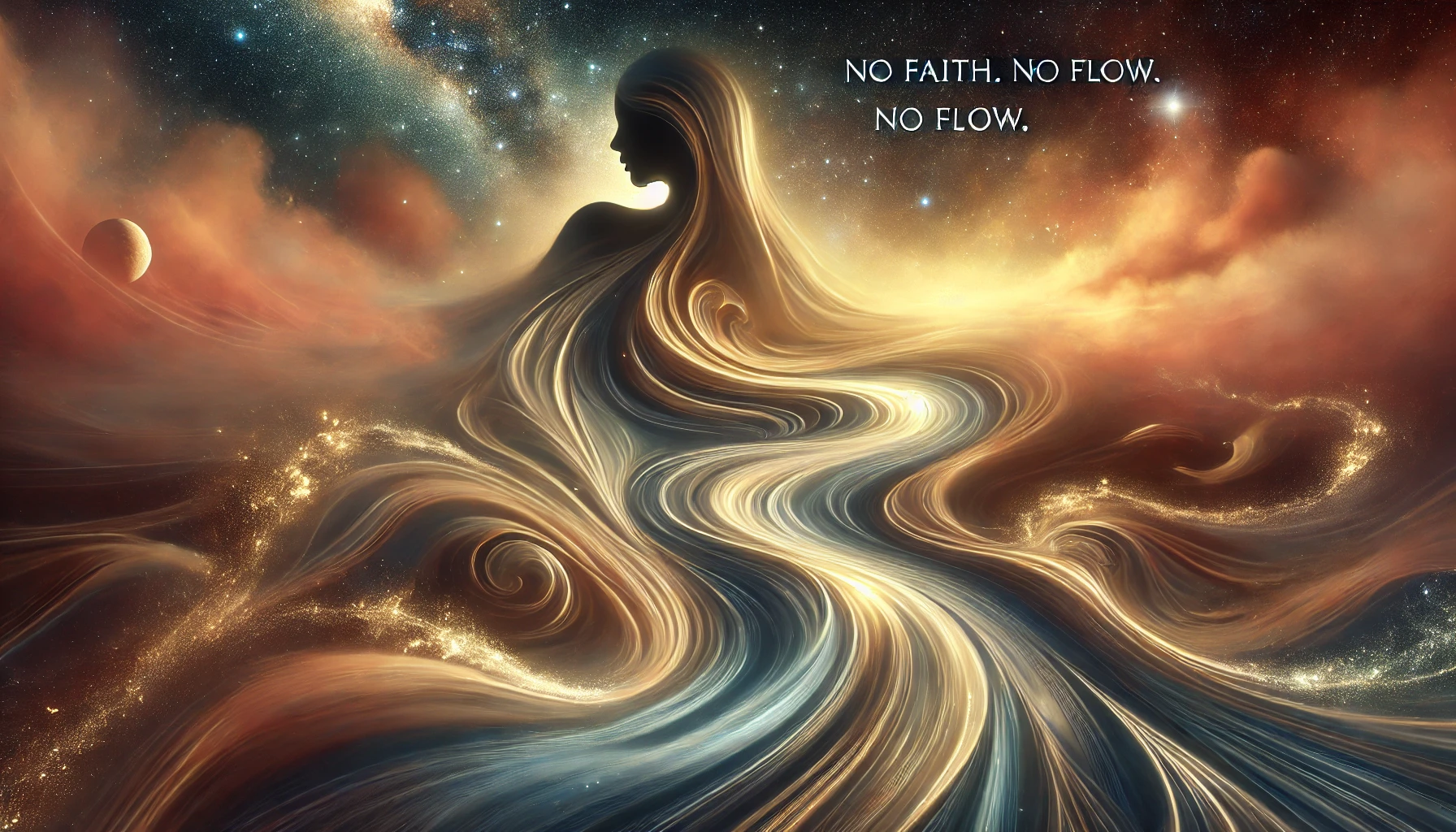




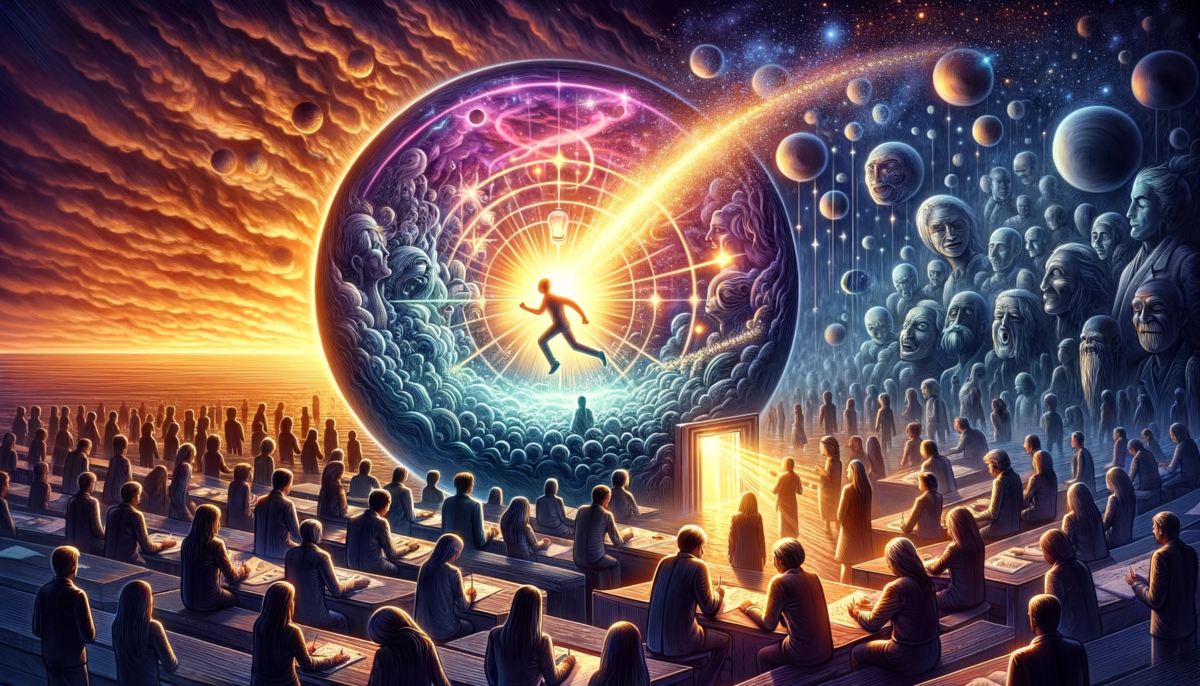
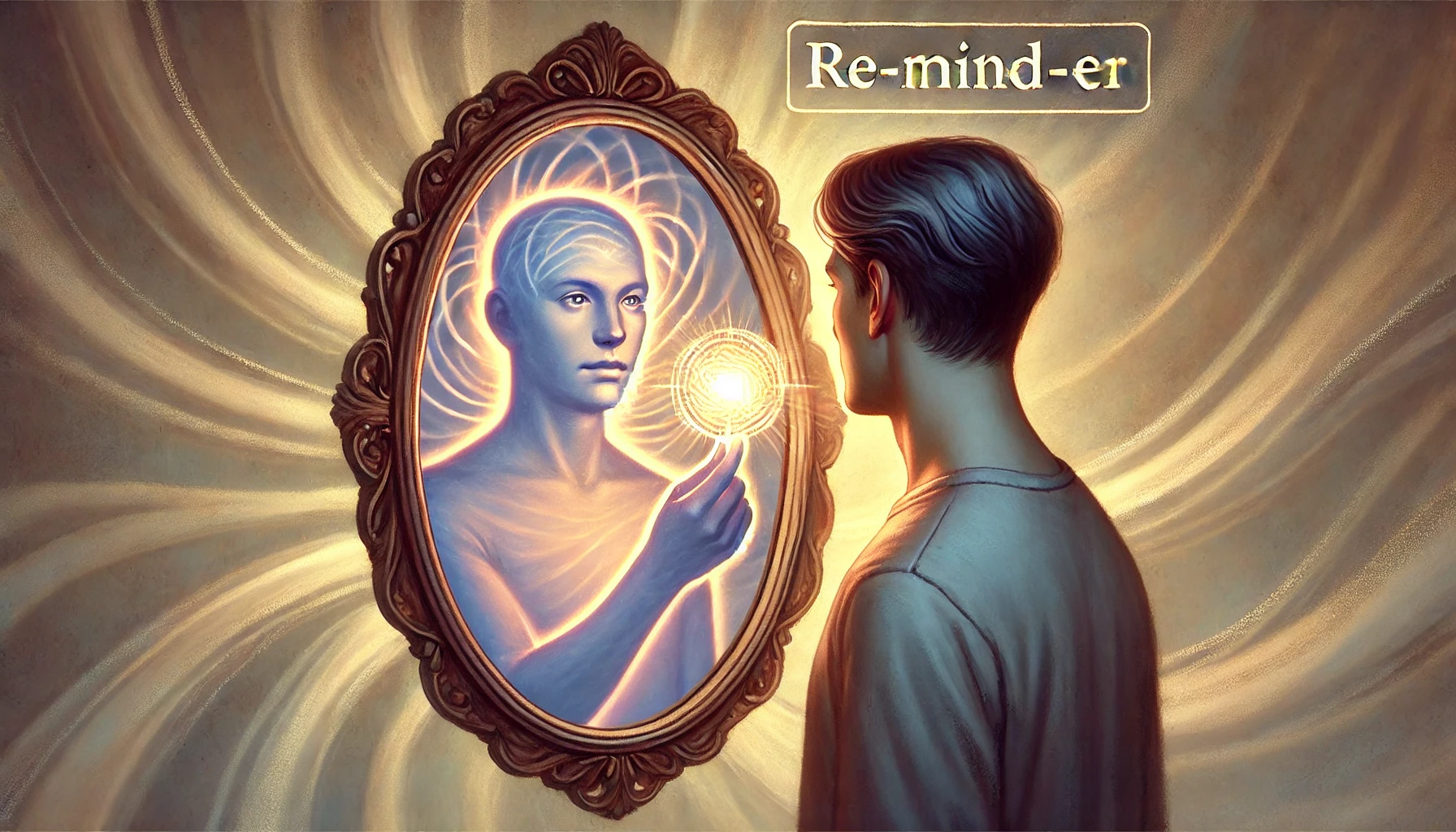
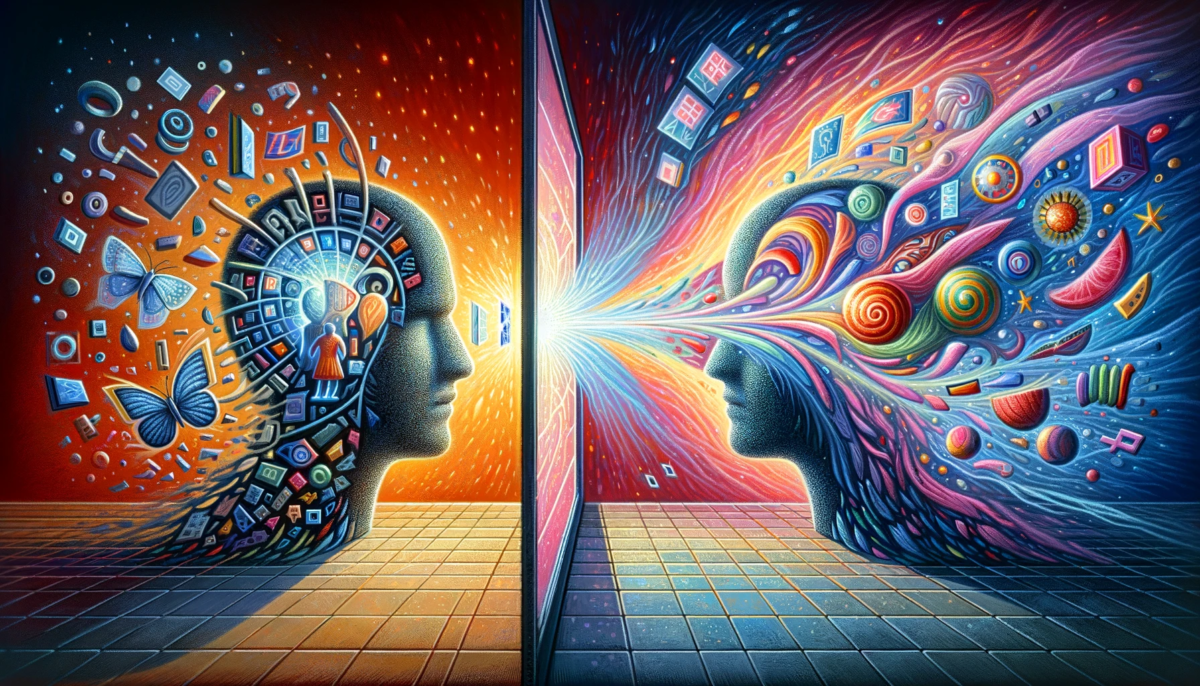
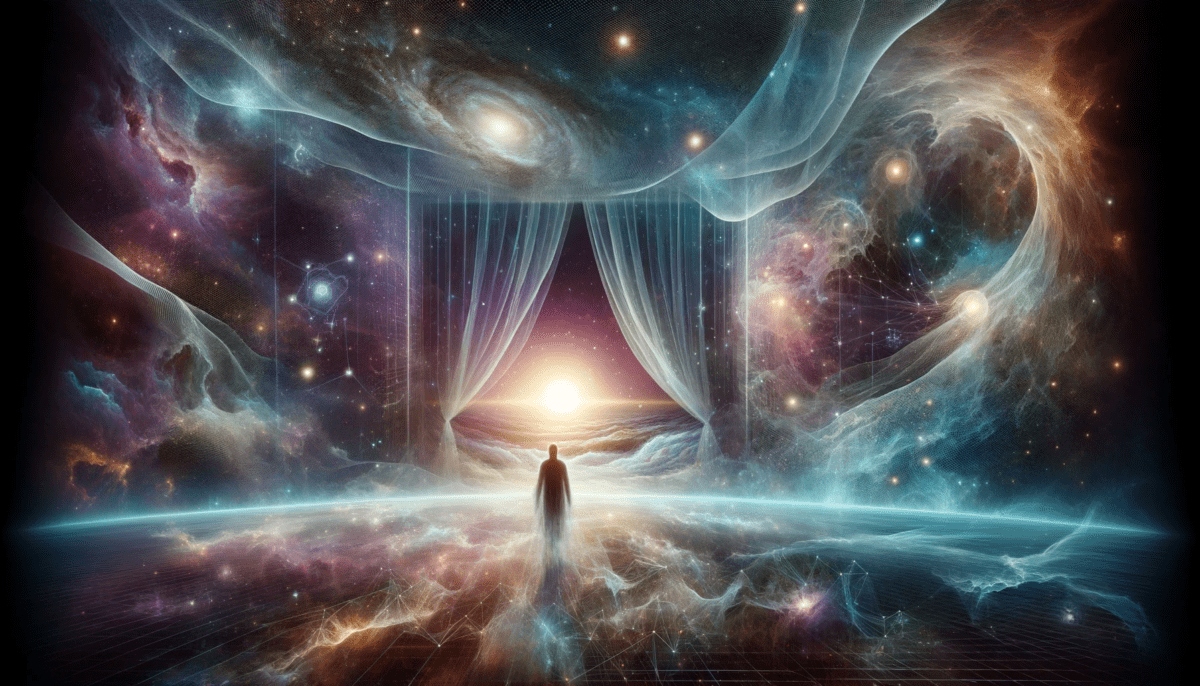
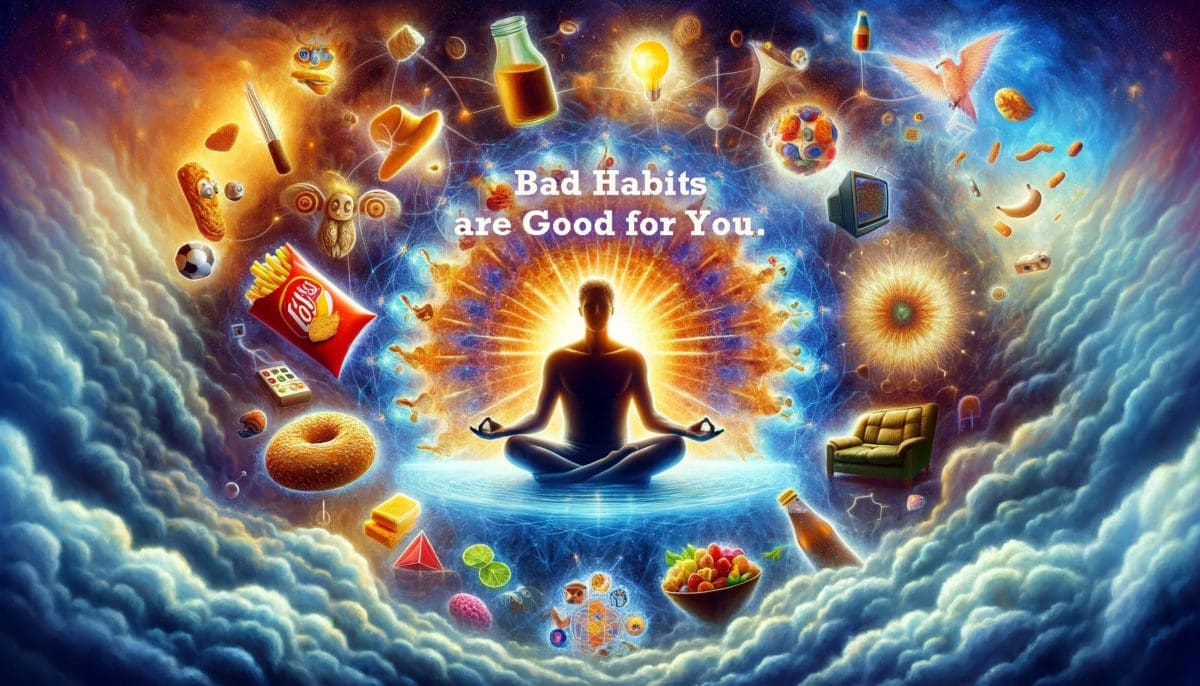




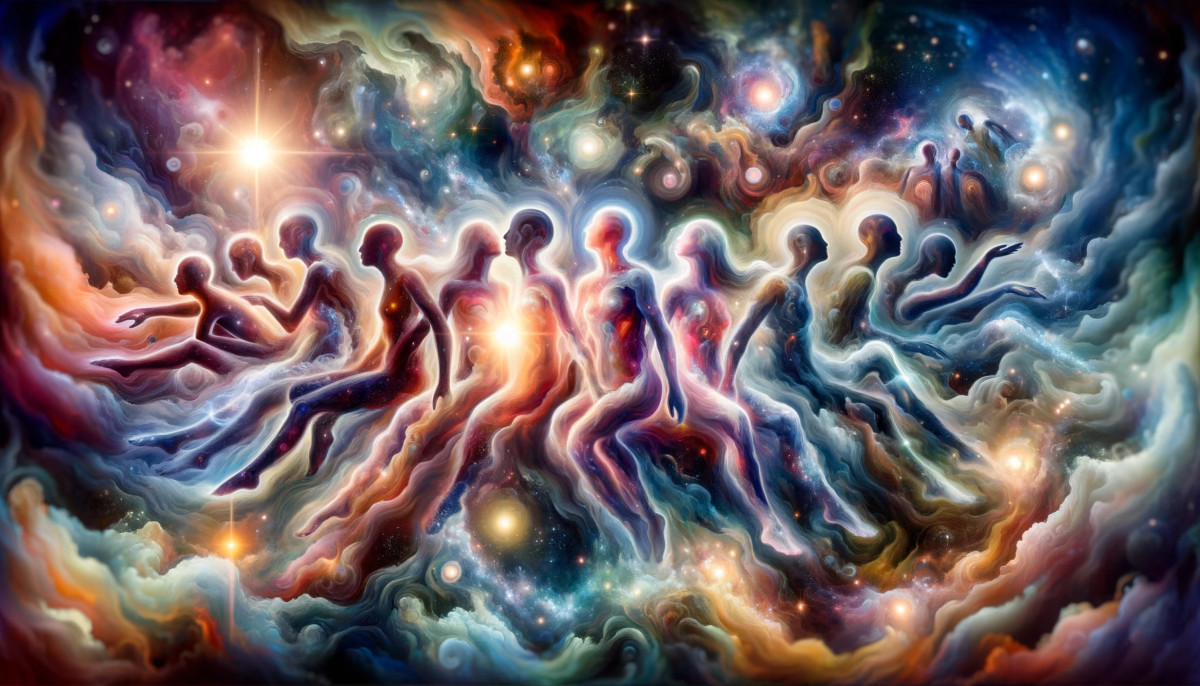
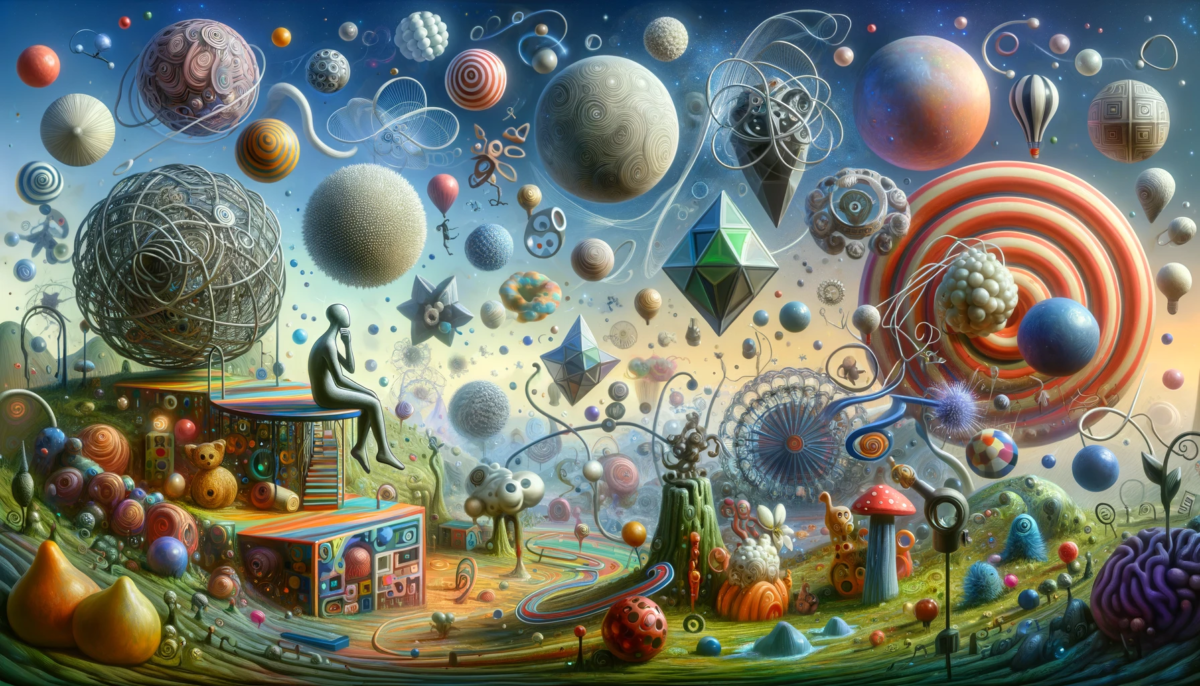
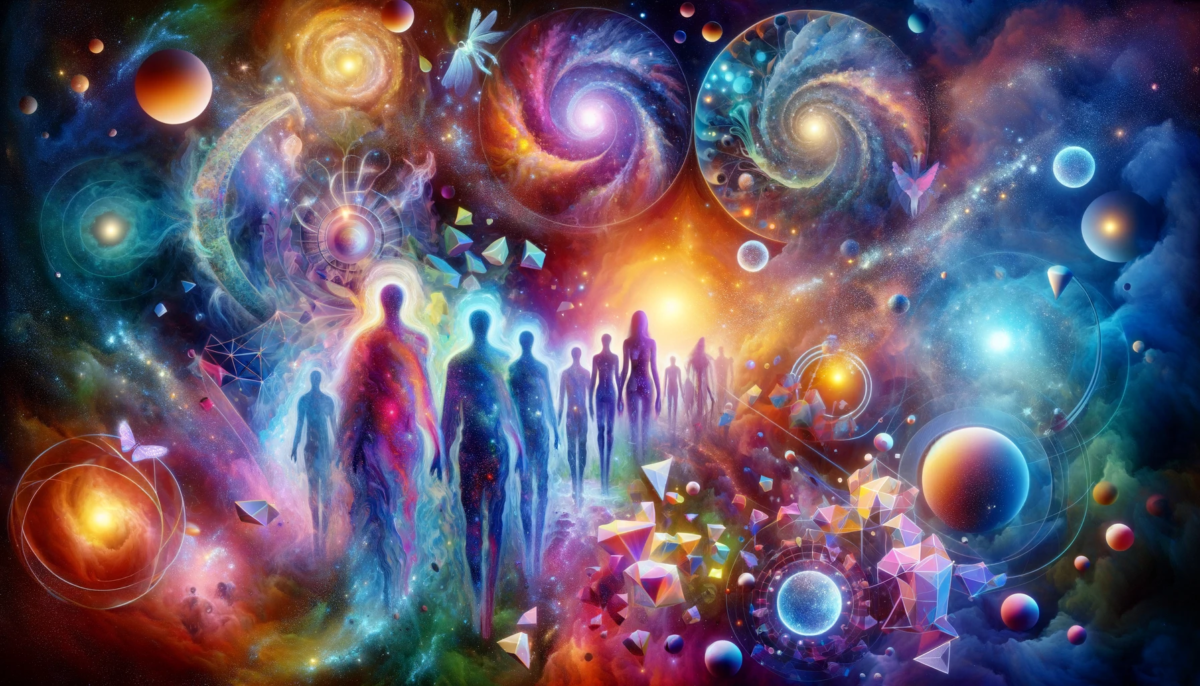

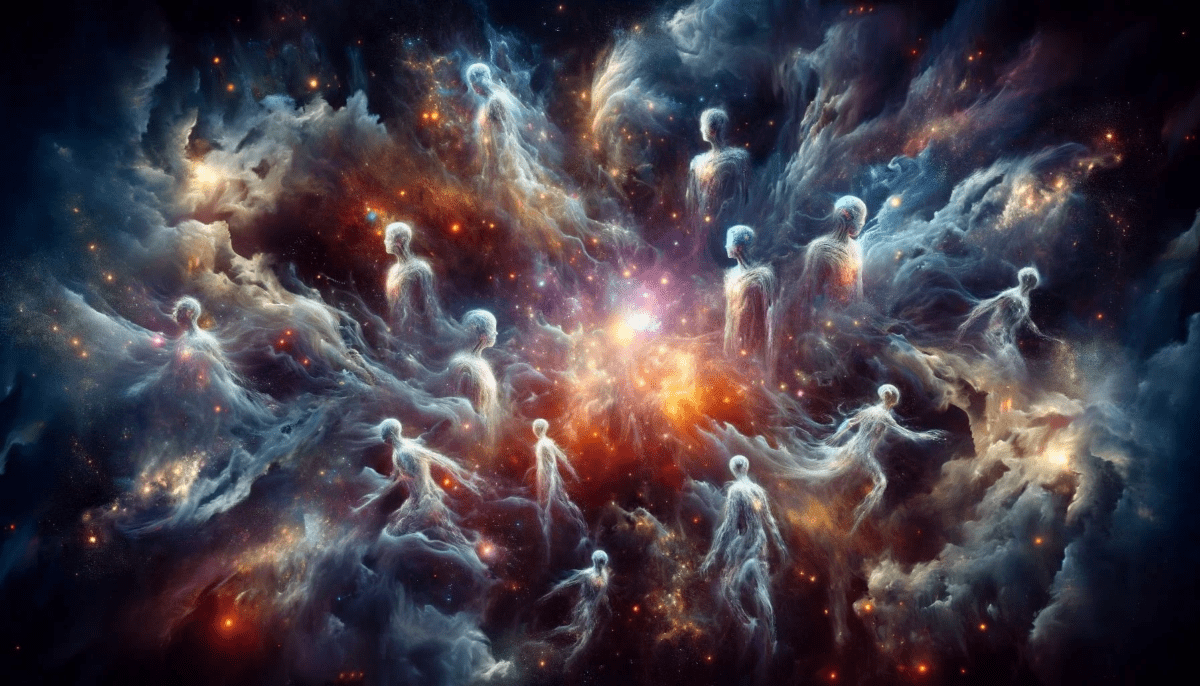
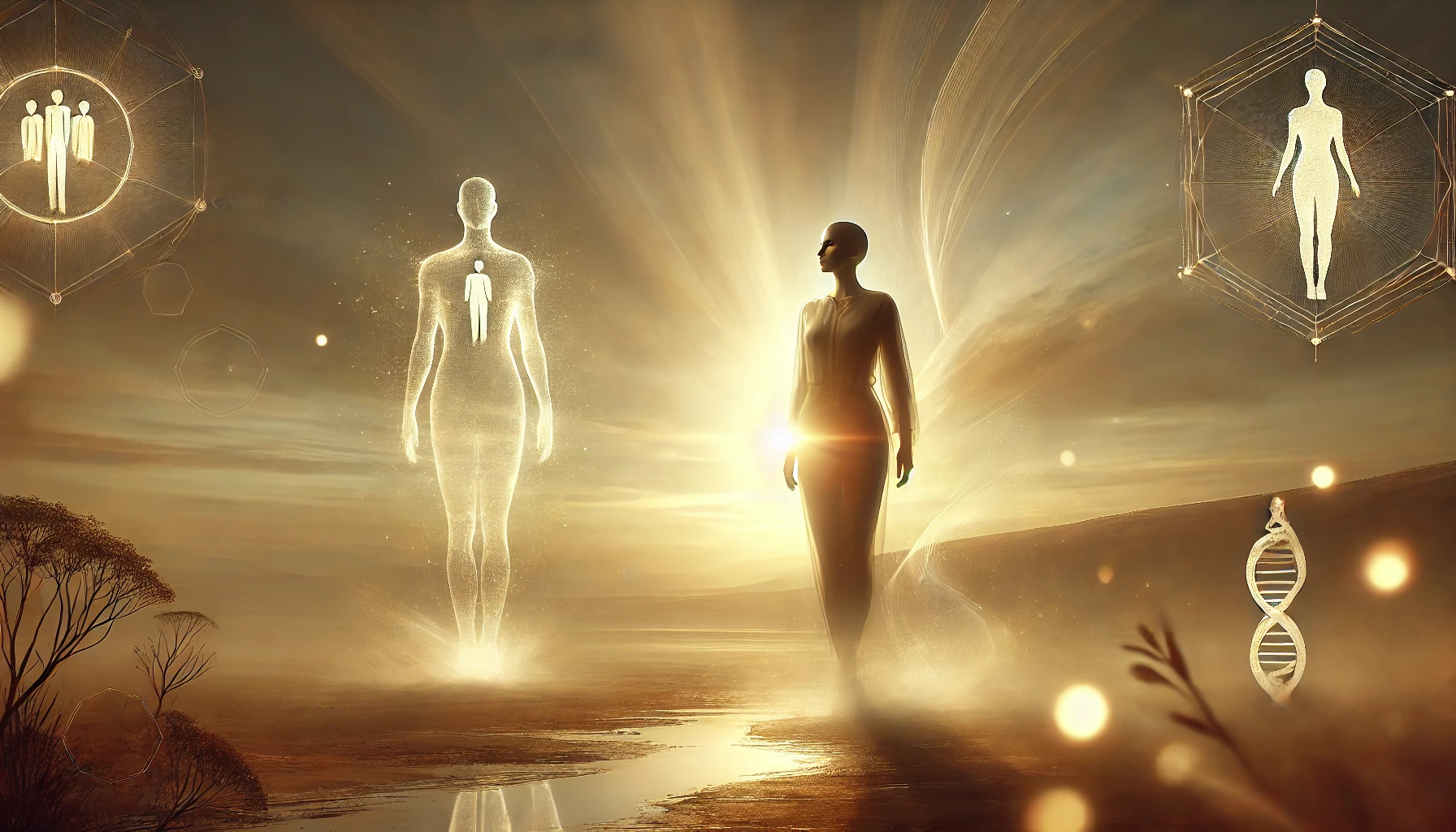

Leave a Reply